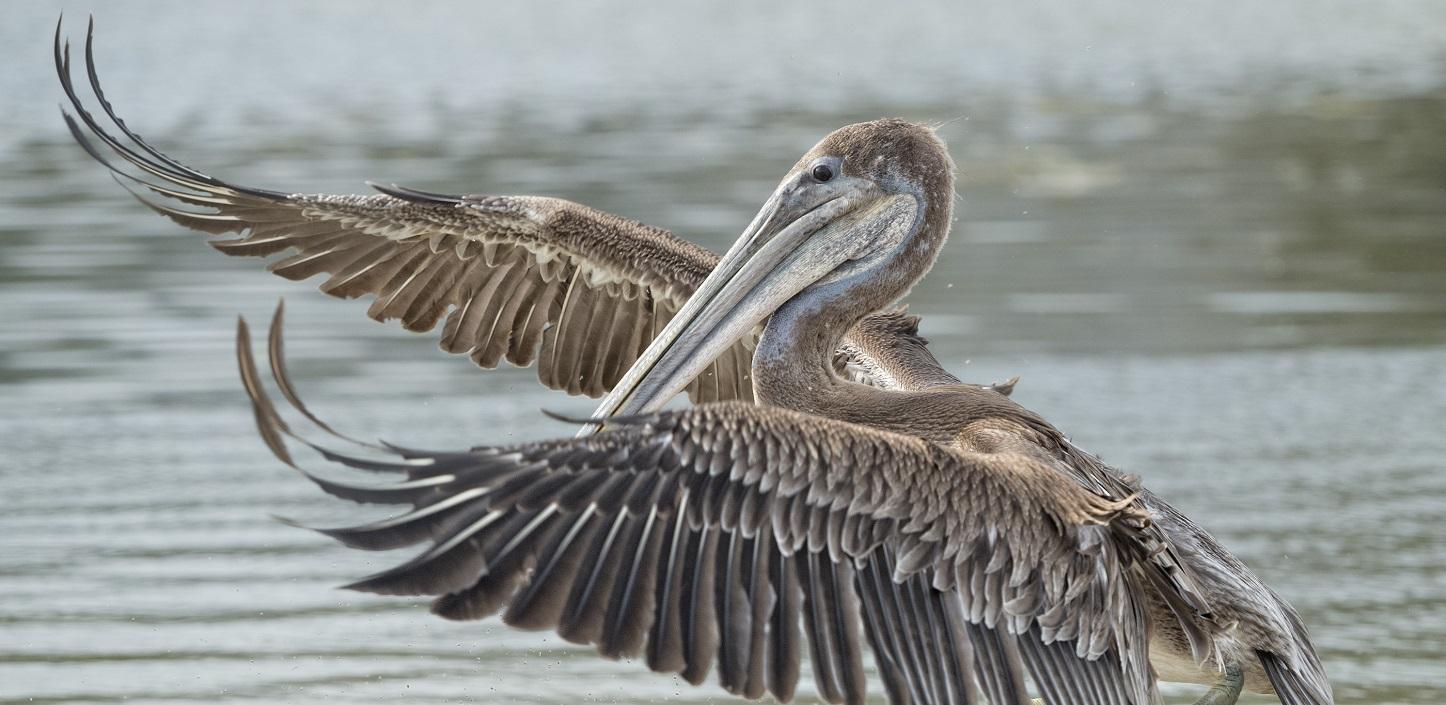
NFWF Approves $660 Million to Support the Mid-Barataria Sediment Diversion Project
Funding from the Gulf Environmental Benefit Fund will help reverse the historic loss of wetlands along Louisiana’s coast
WASHINGTON, D.C. (March 8, 2023) – The National Fish and Wildlife Foundation (NFWF) today announced the award of $660 million from its Gulf Environmental Benefit Fund (GEBF) to the Louisiana Coastal Protection and Restoration Authority (CPRA) to support construction of the Mid-Barataria Sediment Diversion (MBSD) project, the first and most significant of two planned sediment diversions in Louisiana.
The GEBF was established by NFWF in 2013 to receive and administer a total of $2.544 billion paid by BP and Transocean in settlement of certain federal criminal environmental charges brought by the United States in the wake of the 2010 Deepwater Horizon disaster. Under the settlements, the GEBF funding allocated to projects in the State of Louisiana, in the amount of $1.272 billion, is required to be used to support barrier island restoration and river diversion projects in the State.
“This award of $660 million, the largest single conservation investment in the history of the National Fish and Wildlife Foundation, will help reverse the historic loss of wetlands along the Louisiana coast,” said Jeff Trandahl, executive director and CEO of NFWF. “The wetlands in the vicinity of the Mid-Barataria Sediment Diversion were among the most heavily oiled as a result of the Deepwater Horizon Oil Spill and we are pleased to support CPRA’s efforts to continue restoring these vital resources.”
“The Mid-Barataria Sediment Diversion is an innovative, first-of-its-kind project that will bring unprecedented strength to Louisiana’s coastal program,” said Chip Kline, Executive Assistant to the Governor of Louisiana for Coastal Activities. “The project will restore areas experiencing some of the highest rates of land loss in the world for decades to come through sustainable land building. Moving forward with this project is a monumental milestone… one that would not have been possible without NFWF. We’re grateful for their continued collaboration and support throughout project development. This award represents a significant investment in conserving Louisiana’s coast and furthers NFWF’s support of CPRA and Louisiana’s coastal program.”
Following recommendations from scientists and coastal engineers, Louisiana has long sought to reconnect the Mississippi River to its delta to build and sustain vital wetlands that not only benefit fish and wildlife, but also provide critical storm protection to communities across Southeast Louisiana.
Beginning with NFWF’s first GEBF awards to CPRA in 2013, the Foundation has provided critical funding that has allowed the state to accelerate the planning, design, and environmental permitting of the MBSD, a cornerstone of its comprehensive Coastal Master Plan, bringing the sediment diversion closer to reality. As a vital piece of Louisiana’s “Multiple Lines of Defense” strategy, the MBSD will improve the sustainability of many other projects in the vicinity, provide much-needed sediment that will help these areas maintain their wetlands and buffering communities against storm surges. NFWF’s funds will be used in support of project construction. Over 50 years, the MBSD is expected to build or sustain approximately 20 square miles of additional land compared to future conditions if the project is not built.
The funding approved today will be joined with an additional $2.26 billion recently approved by the Deepwater Horizon Louisiana Trustee Implementation Group (LATIG; a multi-agency group consisting of the state of Louisiana, NOAA, the Department of the Interior, the Environmental Protection Agency, and the Department of Agriculture). The LATIG has approved funding for the construction of the project to offset damages to coastal wetlands caused by the Deepwater Horizon Oil Spill. The U.S. Army Corps of Engineers also approved permits and permissions to construct the project in 2022.
As required by the terms of the governing settlement documents, NFWF consulted with CPRA, as well as the U.S. Fish and Wildlife Service and NOAA, as the project was developed. The consultations ensured coordination between NFWF’s GEBF and the agencies’ related activities under the Natural Resource Damage Assessment program. To learn more about the GEBF and the projects funded over the past ten years, please visit www.nfwf.org/gulf.
About the National Fish and Wildlife Foundation
The National Fish and Wildlife Foundation (NFWF) works with the public and private sectors to sustain, restore and enhance the nation’s fish, wildlife, plants and habitats for current and future generations. Chartered by Congress in 1984, NFWF has grown to become the nation’s largest private conservation grant-maker, funding more than 21,600 projects and generating a total conservation impact of $8.1 billion. Learn more at nfwf.org.
###
Contact:
Rob Blumenthal, (202) 595-2457, rob.blumenthal@nfwf.org